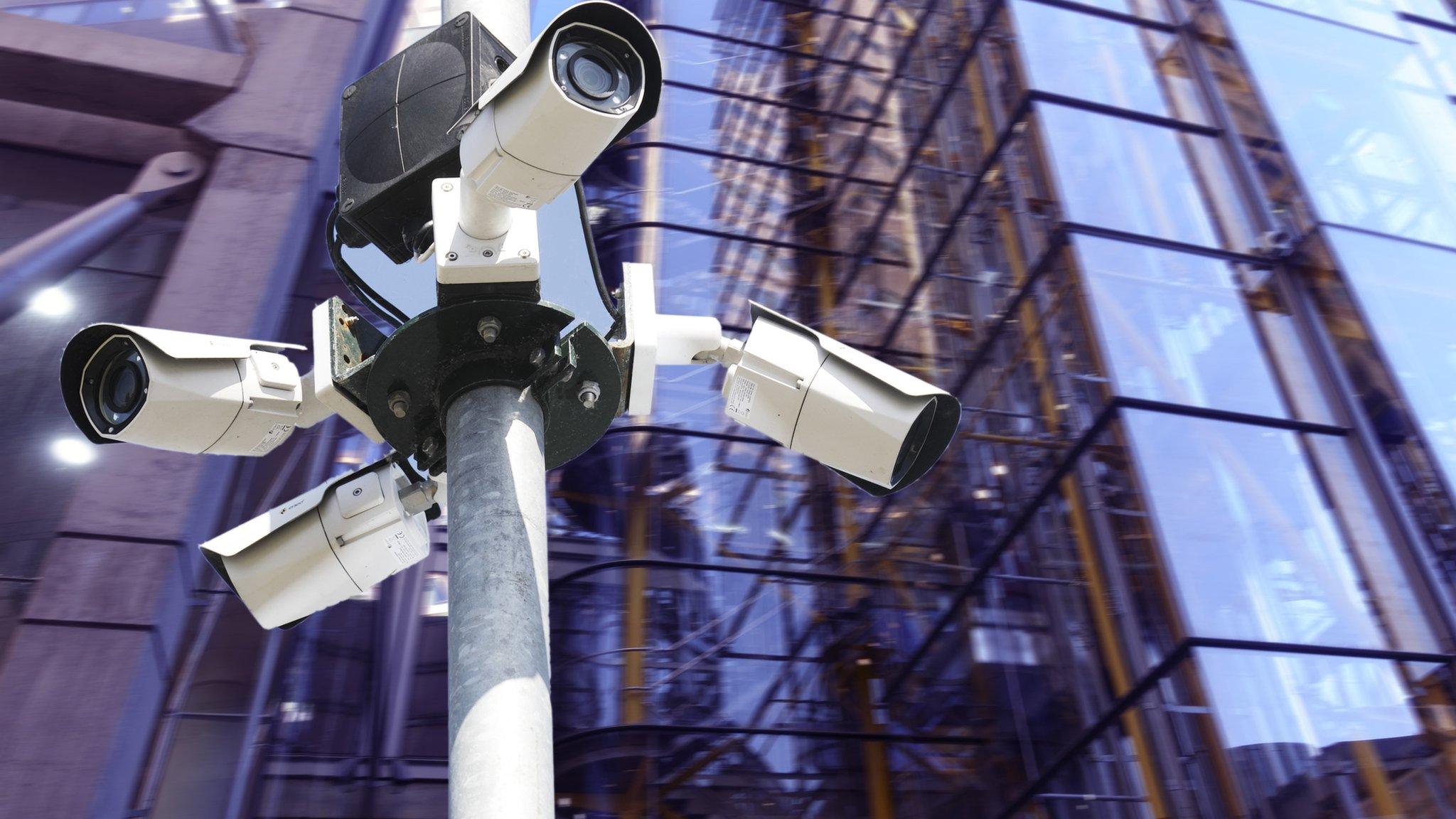London boroughs among those with highest fly-tipping increase
- Published
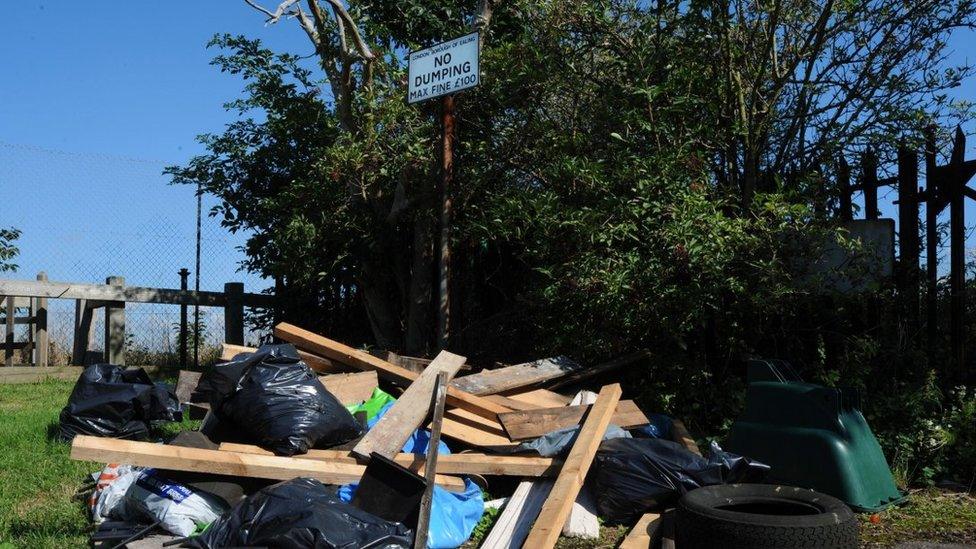
Defra data showed eight of the top 10 boroughs for fly-tipping incidents were in London
Fly-tipping has increased in parts of London with three boroughs among those with the biggest rise in England.
Government data shows, external there was a 93% year-on-year increase in fly-tipping incidents in Tower Hamlets, and in Barnet and Westminster fly-tipping increased by 65% and 64% respectively.
Brent recorded the highest number of incidents of any England borough with 35,000 incidents in 2022-23.
The councils have been approached for comment.
London also ranked highly for boroughs with the most recorded incidents, the figures from the Department for Environment Food and Rural Affairs (Defra) indicated.
In Tower Hamlets, east London, recorded fly-tipping incidents increased from 8,199 in the 2021-22 financial year to 15,861 in 2022-23.
In Barnet, north London, incidents increased from 5,907 to 9,763, and in Westminster incidents went up from 18,749 to 30,737 over the same time period.
Seven other boroughs came in the top 10 based on the number of incidents: Camden, Westminster, Hackney, Hounslow, Lewisham, Croydon and Haringey.
A plot owned by Network Rail has had around 60 van loads of rubbish dumped.
In contrast, the three London boroughs where incidents fell most in the same time period were Hammersmith & Fulham, Newham and Bexley, with reductions of 33%, 32% and 29% respectively.
The data comes after Westminster launched an artificial intelligence CCTV scheme in an attempt to deter fly-tippers - but a Freedom of Information request showed it received no money in fines.
A plot in Hayes, west London, also had about 60 van loads of rubbish illegally dumped on it last year, according to witnesses.
In Bexley, resident Kym Grant says a road near her home has been severely affected by the issue: "Everything is dumped here."
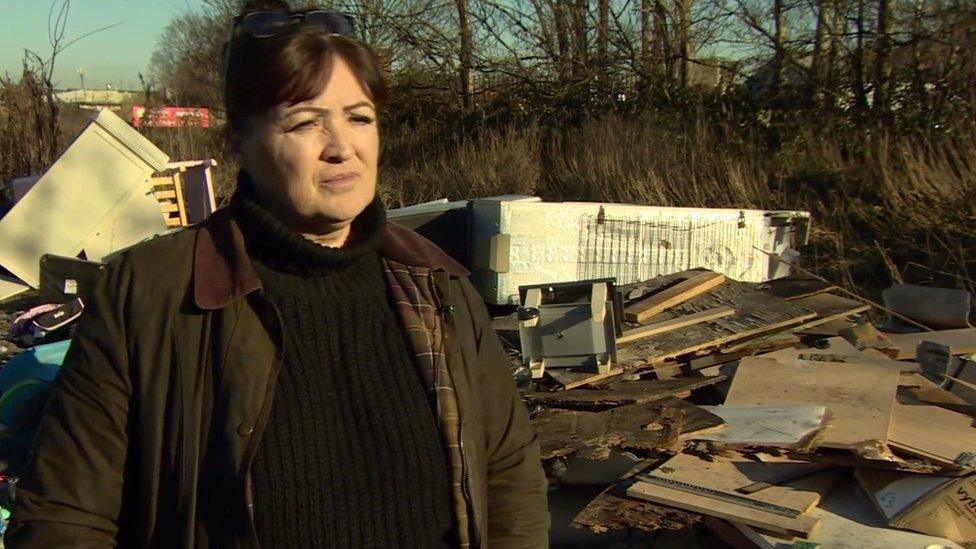
Kym Grant said: "There used to be a lot of wildlife down here and that's gone because the ditches are filled up"
"This stretch of road is about a mile long and either side it has ditches which are filled up with household appliances, (and) loads and loads of tyres," she said.
"It's frustrating because I don't think anybody really wants to walk down here because of the way it is."
She explained problems have been exacerbated by the fact the land is privately owned, but stressed all the stakeholders needed to get together and "there has to be a resolution".
"[The council] need to put hidden cameras all the way along here and someone needs to man them. It's going to cost them money, but then it costs them money when all the fire engines have to come out."
Defra said fly-tipping on private land often went unreported, which meant the figures may not capture the full scale of the problem.
'Fly-tipping is inexcusable'
Councillor Paul Dimoldenberg, Westminster Council's cabinet member for city management and air quality, said keeping the borough's streets "clean and safe" was the council's "top priority".
"Westminster is the centre of economic and cultural activity at the heart of London, welcoming millions of visitors every year. As a result, the council processes huge quantities of waste and recycling every day.
"We saw a reduction in rubbish dumped in known hotspot areas last year and continue to hand out warnings and fixed penalty notices where we have the evidence of who has committed the offence."
A Tower Hamlets spokesperson said fly-tipping exerts a "greater pressure" in the borough due to it being "the mostly densely populated borough in the country".
The spokesperson added the council is proposing a further £5m of investment into waste services in the upcoming budget.
"This would fund an additional 72 frontline workers along with increases in night-time and weekend rounds, new rapid response teams, and a modernisation of the service and optimisation of waste routes," they said.
Councillor Krupa Sheth, Brent Council's cabinet member environment, infrastructure and climate action said: "Keeping Brent clean and green is at the heart of everything we do.
"The vast majority of residents take huge pride in their streets and we thank hundreds of them who help us pick it up, through mass litter-picking events and other initiatives.
"We are taking serious steps to decrease the amount of rubbish littered on our streets in many ways, mainly through our award-winning Wanted campaign which plasters pictures of fly-tippers across the borough asking for information on who they are, and when we find them we can give them a hefty fine."
Darren Rodwell, the Local Government Association's environment spokesperson, said: "Fly-tipping is inexcusable.
"We continue to urge the government to review sentencing guidelines for fly-tipping, so that offenders are given bigger fines for more serious offences to act as a deterrent.
"Manufacturers should also contribute to the costs to councils of clear-up, by providing more take-back services so people can hand in old furniture and mattresses when they buy new ones."
Recycling minister Robbie Moore said overall enforcement was up by 6% and fly-tipping had decreased for the second year in a row "but we know there is more to do".
"That's why we are helping councils to take the fight to criminals with additional grants to tackle fly-tipping, higher £1,000 on-the-spot fines for offenders and powers to stop, search, and seize vehicles suspected of being used for fly-tipping."

Listen to the best of BBC Radio London on Sounds and follow BBC London on Facebook, external, X, external and Instagram, external. Send your story ideas to hello.bbclondon@bbc.co.uk
- Published25 October 2023
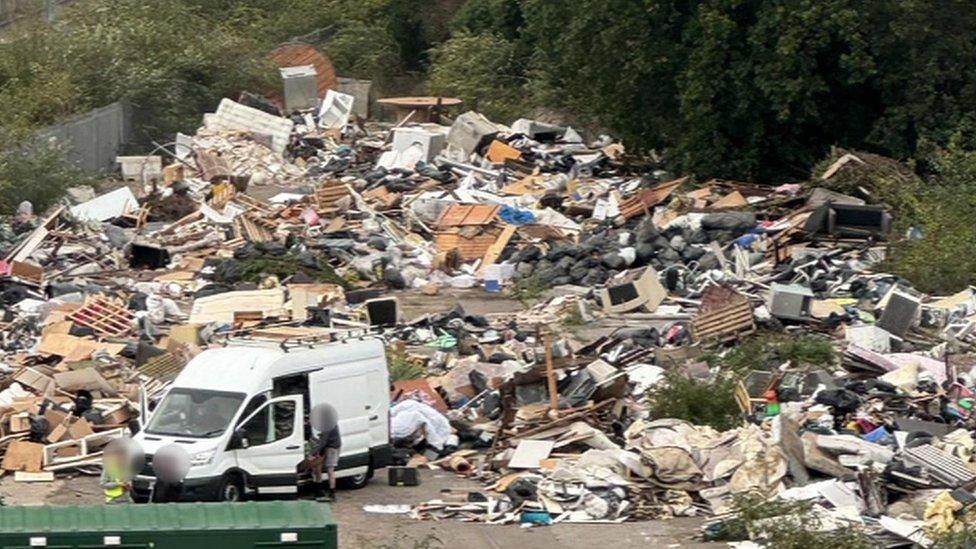
- Published1 September 2023
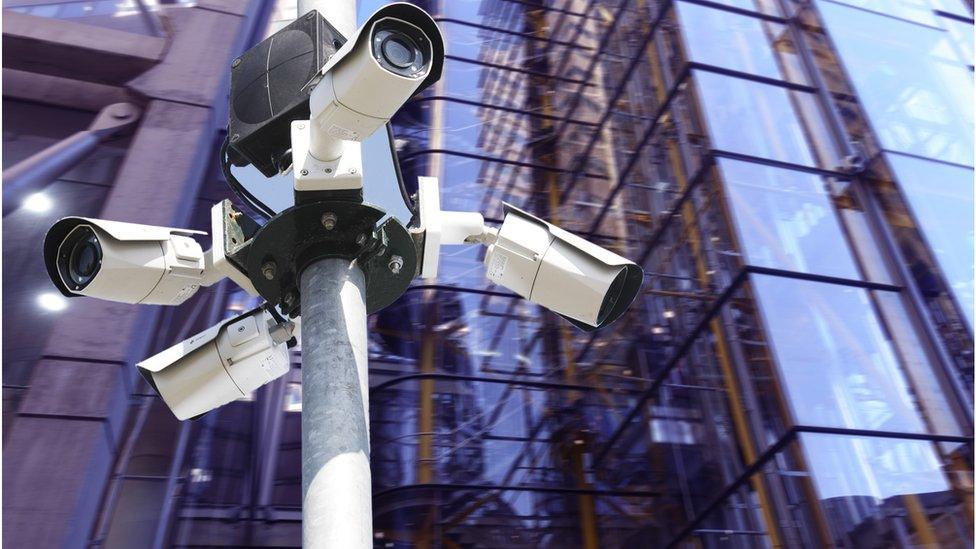
- Published26 February 2023
